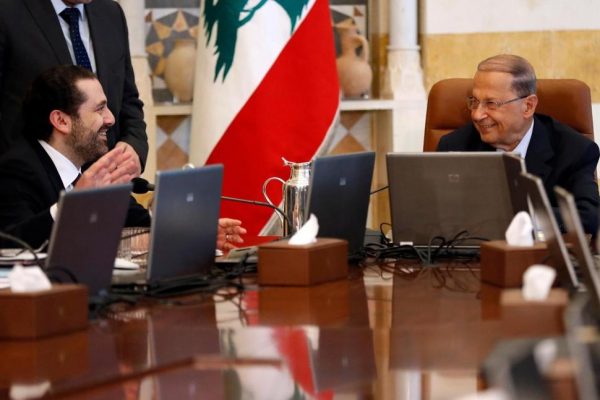 The Lebanese Cabinet has approved a new elections law and referred it to parliament for ratification, paving the way for parliamentary elections postponed twice over the past year.
The Lebanese Cabinet has approved a new elections law and referred it to parliament for ratification, paving the way for parliamentary elections postponed twice over the past year.
During Wednesday’s government meeting that approved the new law, the term of the current parliament was extended 11 months until May 20, 2018 . The vote is scheduled for May 6,2018
The current parliament was elected to a four-year term in 2009, but its tenure has been extended twice over security concerns and the civil war in neighboring Syria that spilled into Lebanon on several occasions.
Prime Minister Saad Hariri praised the new elections law as a “historic achievement.”
The agreement came days before the legislature’s term was to end on June 20 — avoiding sending the country into a fresh political crisis.
The new electoral law splits Beirut into two districts and moves the minorities seat to the first district. The first district contains Ashrafieh, Rmeil, Saifi and Medawwar while the second contains Bashoura, Marfa, Zokak al-Blat, Mazraa, Ras Beirut, Ain el-Mreisseh, Minet el-Hosn and Mousaitbeh.
The parties also agreed that any electoral list has to reach a certain threshold to become eligible to win seats. The threshold is determined by the so-called electoral quotient: the total number of voters in a certain district divided by the number of seats.
The so-called preferential vote will meanwhile be counted in the administrative district ( Qada) and not in the electoral district, a demand that the Free Patriotic Movement had long called for, while Hezbollah wanted the (preferential) vote to be counted in the electoral district ( Muhafaza) .
Municipality members, who intend to run for Parliament, will have to resign from their posts a month after the vote law is published in the Official Gazette. The previous period was two years.
An agreement was also reached on other technical details .
But no agreement was reached
- allowing the armed forces to vote,
- lowering the voting age from 21-18
- introducing a women’s quota
- expat voting
But they agreed that expat voting will be introduced in the 2022 elections and that the diaspora will be granted six seats.
Historic achievement
“It’s a historic achievement,” Hariri told reporters in a news briefing after the session, adding that the 11-month delay gives authorities time to prepare for the elections, educate voters on the process, to issue magnetic voting cards and printed ballots, and to prepare for electronic vote tabulation.
Several ministers expressed reservations on a number of items, Hariri added
“We decided to put aside controversial items and focus on the common points.”
Similarly president Aoun praised the new law.
“The vote law is a tremendous achievement. The [voting system] in Lebanon has been majoritarian since before [Lebanon’s] independence,” Aoun added.
The law includes 125 articles, and is based on proportional representation.
Reservations about the law
As Hariri mentioned a number of ministers criticized the agreement
Phalange Party MP Nadim Gemayel tweeted against the approach of rivals to resolve political standstill.
Education Minister Marwan Hamadeh said ahead of the session that he didn’t understand the vote law.
“We didn’t object on the law but we have several notes regarding the age of voting, women quota and the voting of expats,” he said.
Minister of State for Women’s Affairs Jean Ogasapian said that he would propose during the session the addition of an article that guarantees that each list would include a female candidate.
Several rights groups and organizations have long lobbied for a women’s quota, arguing that a minimum 30 percent of seats should be filled by women in parliamentary elections. The current Parliament of 128 has only four female MPs.
The vote law agreement is considered a big political achievement for both Aoun and Hariri, especially the latter who had declared that the failure to agree on a new electoral law would be viewed as a failure of his government.

Leave a Reply
You must be logged in to post a comment.